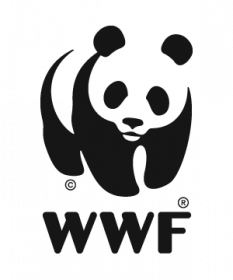World Wildlife Fund (WWF), one of the world’s leading conservation organization, seeks a Supply Chain Intern.
This internship provides an opportunity to improve research and project coordination skills in a professional setting, gain knowledge about companies, supply chains, and environmental issues, and contribute to WWFcomprehensive waste analysis for corporate partner(s). The internship also provides the opportunity to interact with representatives from US & European companies as well as WWF
Areas of Responsibility:
- Researching and analyzing the environmental performance and risks of materials, including paper and plastic products, as well as consumer product goods, organic waste and farm-level waste streams;
- Researching topics related to environmental impacts of supply chain systems;
- Assisting in the development of tools and guidance documents for corporate collaborators;
- Assisting in the definition and development of metrics, measurements and tracking of material waste flows for corporate partner(s);
- Assisting with the assessment of environmental, social, economic and supply risks associated with commodity sourcing;
- Creating reports and presentations based on these analyses;
- Communicating results and connecting analysis to broader WWF mission;
- Coordinating with external parties including companies and the WWF network;
- Interfacing with a database of commodity and geographical information; and
- Coordinating with other members of the WWF Private Sector Engagement and Markets teams.
- Other duties as assigned
Educational Background:
Current or recent graduate student in a relevant field, specifically packaging, material science, supply chain management, or environmental science are preferred; highly qualified recent undergraduate graduates may be considered;
Skills/Experience:
- Strong technical background of materials science is highly preferred
- Full-time (35 hours per week) for ~6 months;
- Excellent research, writing, and analytical skills, as well as attention to detail are obligatory;
- Experience with managing research projects and interfacing with external partners is preferred;
- Strong skills in statistics and programming language (Python, R, etc.) highly preferred
- Ability to work productively on both independent research assignments and as part of a team;
- Proactive problem-solving and good communication skills (written and verbal) are obligatory;
- Demonstrated familiarity with the environmental impacts of agriculture, agribusiness and the food industry, rural development issues, corporate sustainability strategy, and economics is preferred;
- Skills in Excel, PowerPoint and Microsoft Word are obligatory; other programs (e.g. GIS, reference management software) and/or programming experience is helpful;
- Fluency in English is required; knowledge of foreign languages (e.g. Spanish, French, Portuguese, German, or Chinese) is a plus.
Job Function:
Organization Info
Listing Stats
Post Date:
Oct 15 2019
Active Until:
Nov 15 2019
Hiring Organization:
World Wildlife Fund
industry:
Nonprofit
